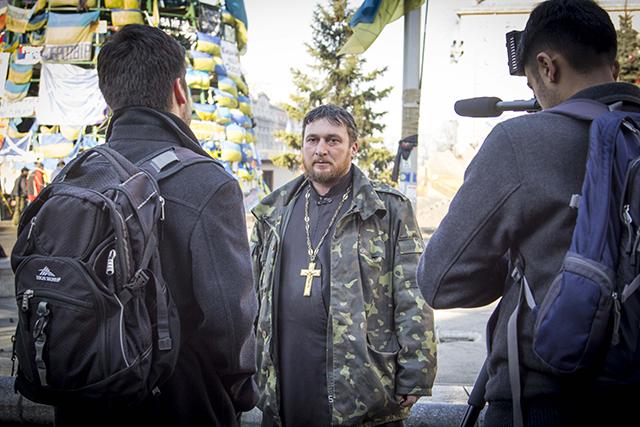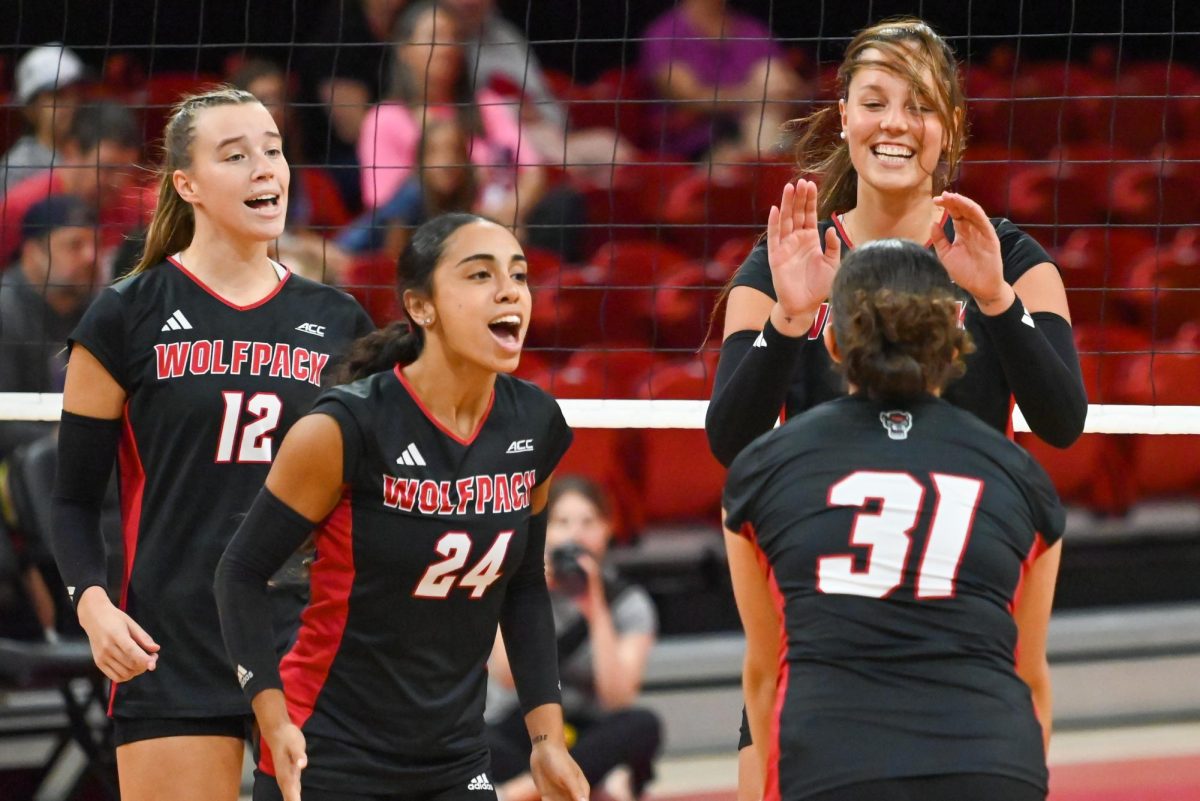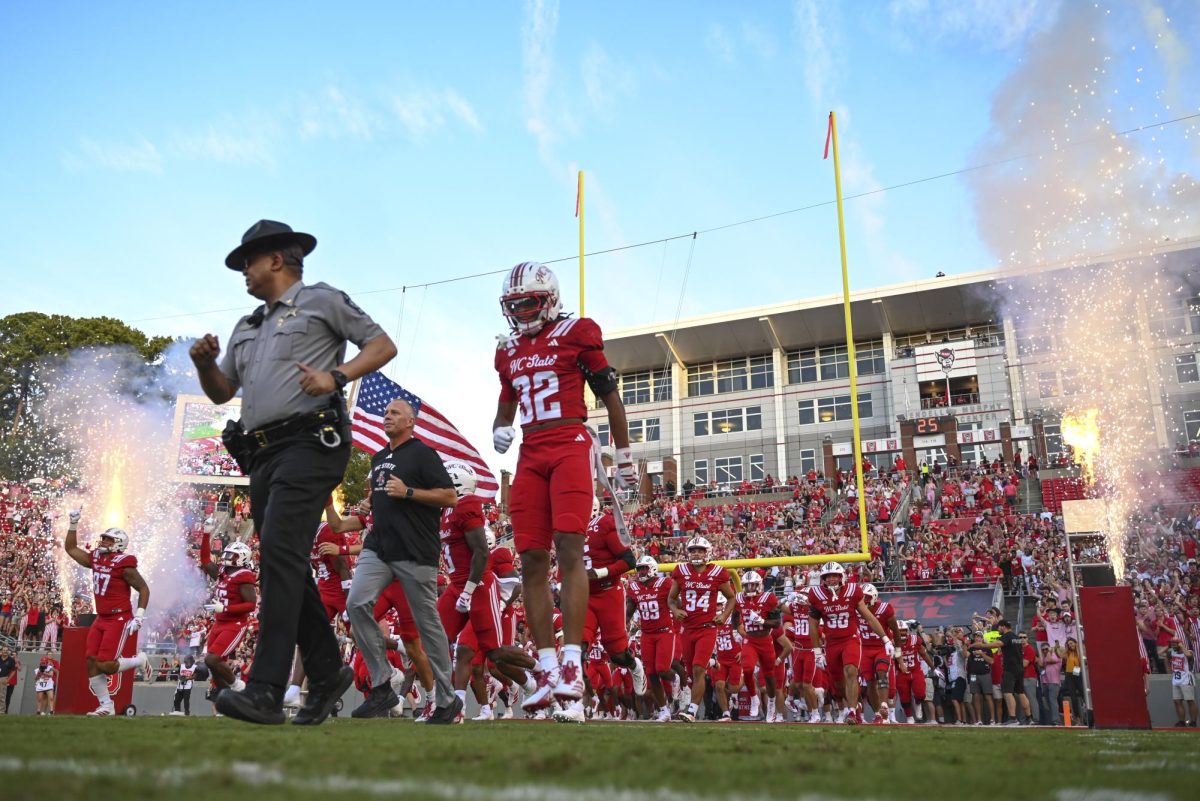During spring break, Andriy Shymonyak and Neel Mandavilli, both juniors in political science, travelled to Ukraine in order to film a documentary about the recent protests.
*Editor’s note: Mandavilli currently works as a contributing columnist for the Technician.
Shymonyak said that the purpose of the documentary was to capture the role of young people, those born in an independent Ukraine as opposed to under Soviet domination, and detail it within the context of the revolution.
“We sought to answer the question as to what compels someone, who has their entire life ahead of them, to protest in below-zero temperatures, spend the night out sleeping in Independence Square, going in front of riot police and facing snipers,” Shymonyak said.
According to Mandavilli, he wants N.C. State to think about what it really means to be a citizen.
“It is about sharing these stories. A lot of the times, there are certain voices that are lost in the bigger stories that are shared. We want to start a conversation at N.C. State as to what it means to be a citizen of a nation and Ukraine presents a powerful example of answering these questions,” said Mandavilli.
Shymonyak and Mandavilli conducted 39 interviews from a variety of people including students, professors, journalists and a priest in order to provide the content for their documentary. Their questions included: what was your role in the revolution, what was your average day like during the protests, how did your involvement change over time. Shymonyak said that many students fell behind in their classes, became sick and got little sleep due to their involvements in the protests.
“The students are the bone of the revolution, while the muscle and skin are those that followed and made the revolution stronger,” said Shymonyak quoting an interviewee.
Shymonyak said he interviewed Serhiy Kvit, the current Minister of Education for Ukraine, who said the students that occupied the Ministry of Education during the protests had a great impact on the formation of the new government. According to Shymonyak, Kvit also praised the students who participated in the beginning of the revolution as they gave it energy and inspired others to join in.
“Regardless of what you major in, it is important to be aware of what’s happening in your country, be aware of the political situation and be an active citizen that participates in the democratic process,” said Shymonyak in response to what the N.C. State community can learn from their filming the documentary.
Shymonyak said their documentary shows that students can make a difference by standing up, making their voices heard and mobilizing. “There is a responsibility to participate in the situation that needs to be understood,” said Shymonyak
“The important thing is to not be apathetic and instead fight the fights that need fighting,” said Shymonyak.
Shymonyak said there were multiple ways for the students to participate in the protests from being on the frontlines of the self-defense squad, cooking, tending to the wounded and getting the word out via social networking. “They had this thing called the ‘couch hundred’ that was a group of individuals who were on social media using their connections and engaging in the spread of information,” said Shymonyak.
Shymonyak said their documentary seeks to tell the narrative of the past three crucial months in Ukraine, from Nayem’s first call to arms in November to the ousting of Yanukovych at the end of February. The revolution, known as the Euromaidan protest, started at the tail end of November due to the Ukrainian parliament not signing the association agreement with the European Union.
Shymonyak, who had worked in the Ukranian parliament prior to these events, shared the sentiment of shock with the Ukranian people that the promise of signing the agreement had been broken. From there, he said students began to come out to protest in Independence Square in Kyiv who were then followed by riot police that violently beat the students.
According to Shymonyak, the beating of the protestors coupled with the passage of laws that limited the ability of people to protest (such as prison time for wearing helmets) ultimately led to the “slip from democracy, or any remnants thereof, into an authoritarian regime.” The conflicts after this point continued to escalate to the point of fatalities, according to Shymonyak. Eventually, the President was brought up on terms of impeachment based on charges of corruption, stealing from the public coffers and killing his own people.
Shymonyak said the city itself had stabilized by the time they arrived in Kyiv. “Outside of Independence Square, it would not have been apparent that clashes had occurred weeks prior unless you saw tire barricades, read the news, saw an abnormal number of flags,” said Shymonyak. In Independence Square though, Shymonyak described the thousands of flowers and hundreds of candles that were laid out in remembrance for those who died during the revolts.
“When you spoke with people, you could tell that they were still traumatized from the events in the previous weeks,” said Shymonyak.
Mandavilli, who was primarily in charge of production and equipment management, said that there is still a lot of work to do on the documentary before it is ready for release, most of which is composed of translating the interviews word for word into English from Ukrainian. Mandavilli said that he envisions a finished product by the end of this year.





